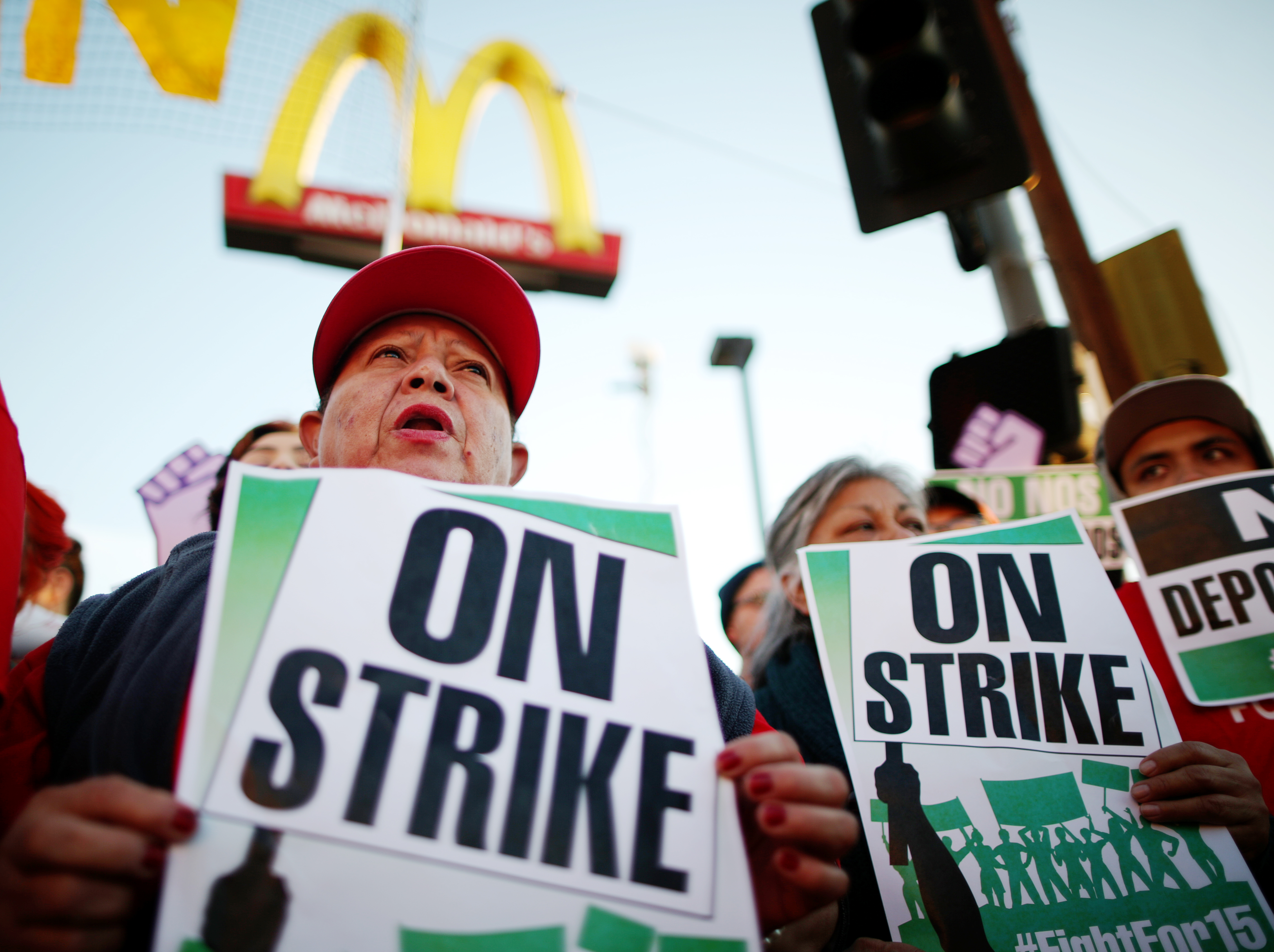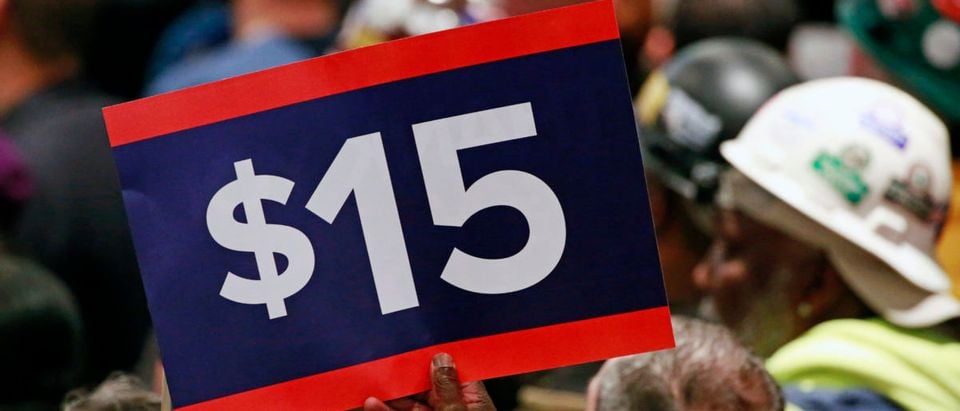California’s minimum wage increase has cost the state thousands of jobs worth of growth in the state’s booming restaurant industry, according to a recent study by the University of California Riverside.
California passed a bill in 2016 to bring the state’s minimum wage up to $15 an hour. For businesses with more than 25 employees, the state’s minimum wage rose to $12 in January and will hit $15 in January of 2022. Other businesses have until 2023 before the full $15-an-hour minimum takes effect.
“The research does not suggest that the minimum wage should not rise or that rising wages do not have any benefits,” the study’s author Christopher Thornberg said in a statement, according to Restaurant Business Online. (RELATED: Almost Three-Quarters Of Economists Say A $15 Minimum Wage Is A Bad Idea)
“However, increases to the state’s minimum wage in recent years have been the fastest since California first set a minimum wage in 1916 — and that pace is creating certain negative consequences for smaller businesses and people who need the most help rising out of poverty,” Thornberg said.
“Data analysis suggests that while the restaurant industry in California has grown significantly as the minimum wage has increased, employment in the industry has grown more slowly than it would have without minimum wage hikes,” the study, published in April, says. “The slower employment is nevertheless real for those workers who may have found a career in the industry.”
Researchers studied the minimum wage’s current effects on businesses from high-end restaurants to fast-food shops. They found the minimum wage has more of an impact on full-service restaurants where customers are served by waiters and food is brought straight to the table. Researchers also found that the minimum wage slowed growth more in low-income areas.
“The impact of a higher real minimum wage on employment growth is roughly twice as high in low income compared to higher income communities in full-service restaurants,” the study says. Employment throughout the restaurant industry is affected more in poorer areas.

Protesters call for a minimum wage of $15 an hour during a demonstration in Los Angeles, Nov. 29, 2016. REUTERS/Lucy Nicholson
Researchers estimate that the minimum wage increases will cost the state roughly 30,000 jobs from 2017 to 2022.
“The model suggests that there would be 30,000 fewer jobs in the industry from 2017 to 2022 as a result of the higher minimum wage,” the study says. “Over the period 2013-2022, therefore, the number of new jobs in the full-service industry will grow by 120,000, but would have grown by 160,000.”
All content created by the Daily Caller News Foundation, an independent and nonpartisan newswire service, is available without charge to any legitimate news publisher that can provide a large audience. All republished articles must include our logo, our reporter’s byline and their DCNF affiliation. For any questions about our guidelines or partnering with us, please contact licensing@dailycallernewsfoundation.org.


